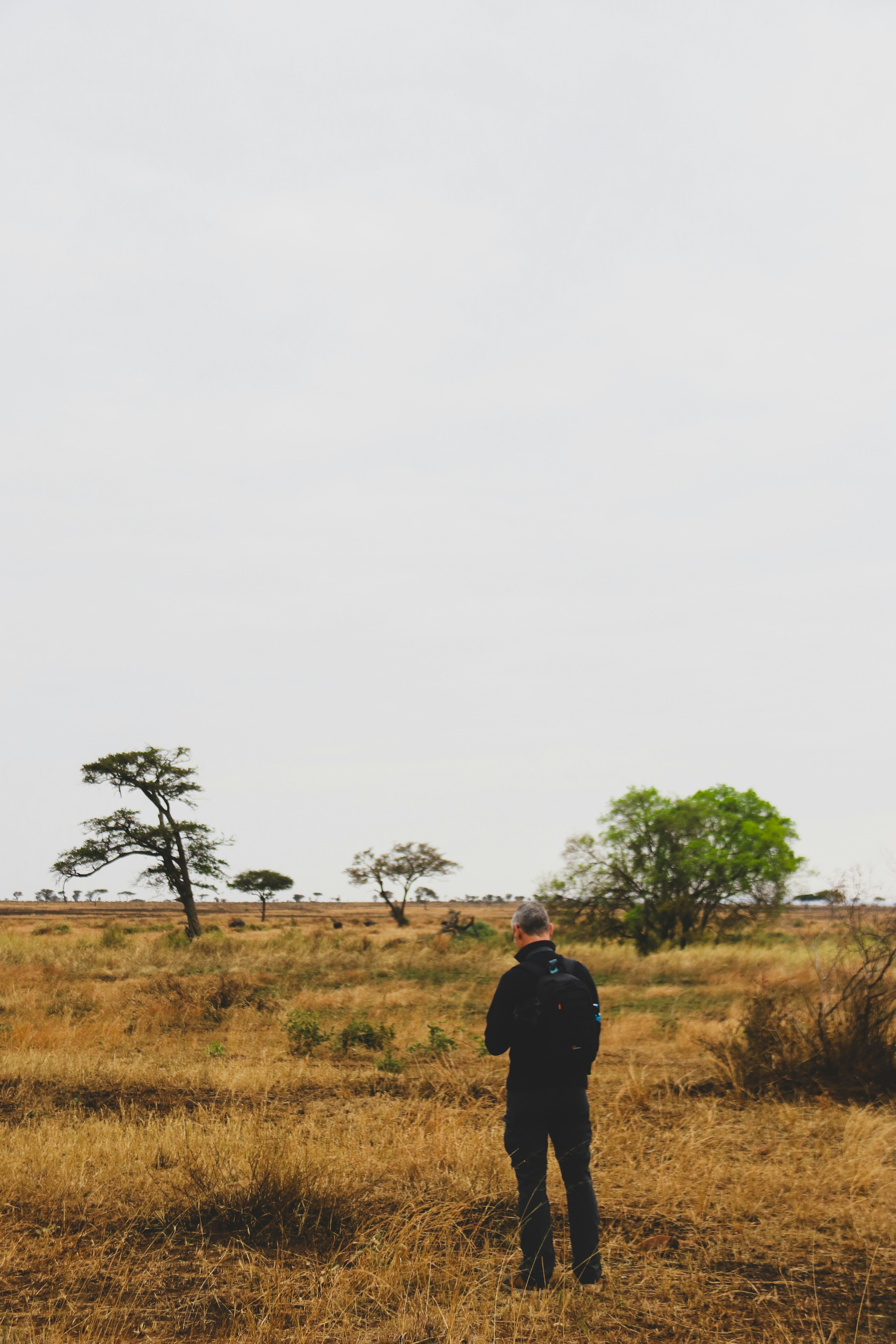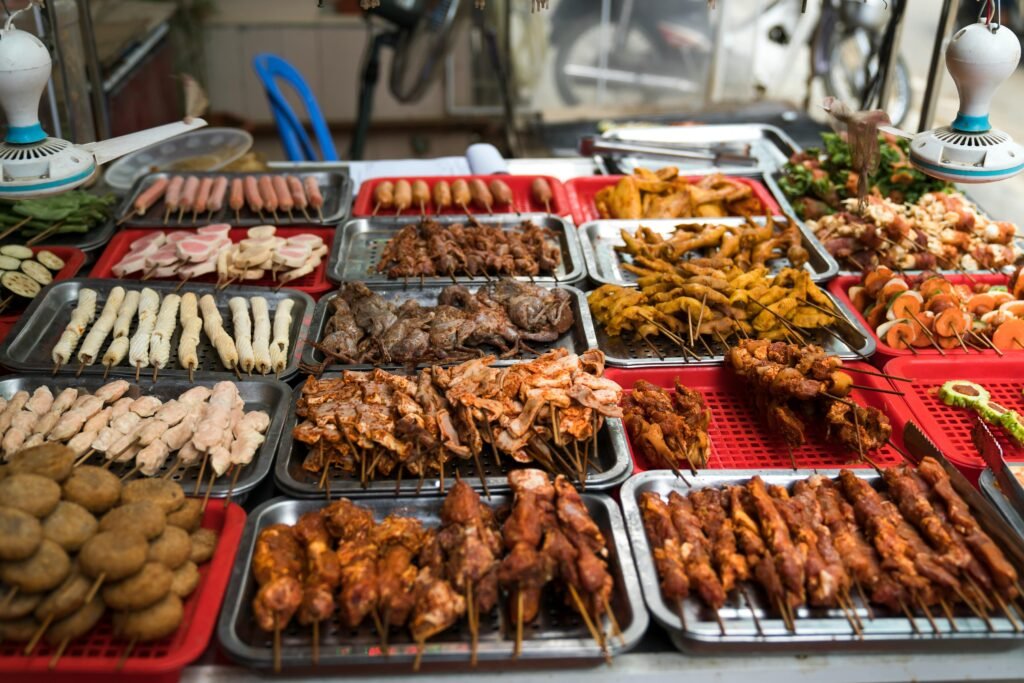Introduction to Budget Backpacking in Africa
Backpacking through Africa is a remarkable journey that offers a unique blend of diverse cultures, stunning landscapes, and abundant wildlife. For those who wish to explore this vibrant continent on a budget, the concept of budget backpacking becomes a valuable approach. Traveling on a budget not only allows for the exploration of various regions but also brings forth meaningful interactions with local communities, enhancing the travel experience.

One of the primary advantages of budget backpacking in Africa is the opportunity to immerse oneself in the rich and varied cultures that exist across the continent. From the bustling markets of Marrakech to the serene vistas of the Serengeti, each destination offers distinct experiences that can be enjoyed without incurring significant expenses. Local street food, affordable accommodations such as hostels and guesthouses, and public transportation options create an accessible environment for budget travelers to discover the authentic essence of Africa.
Additionally, Africa’s unparalleled natural beauty provides countless opportunities for adventure and exploration. Whether trekking through the breathtaking landscapes of the Drakensberg mountains or enjoying a wildlife safari in Kenya, budget backpacking allows travelers to experience these iconic attractions without breaking the bank. By prioritizing planning and resourcefulness, backpackers can maximize their journeys while keeping costs low.
In summary, budget backpacking in Africa presents an exciting and enriching opportunity for those seeking adventure on a financial plan. By embracing local customs, utilizing affordable travel options, and focusing on what truly matters—cultural experiences and natural wonders—travelers can fully experience the continent’s magic without overspending. The following tips will further elaborate on how to save money while experiencing the incredible offerings of Africa.
Finding Affordable Accommodations
When traveling across Africa, securing budget accommodations that align with your financial constraints is essential. Various options exist, ranging from hostels and guesthouses to community-based lodgings that not only offer comfort but also enable cultural immersion. Hostels are a popular choice for backpackers, typically featuring shared rooms that facilitate social interaction and offer markedly lower rates compared to hotels. Alternatively, guesthouses provide a more intimate experience, often run by local families who can share insights about the surrounding area and its culture.
In addition to traditional lodging, modern tech platforms can simplify the search for budget-friendly options. Websites like Airbnb offer an array of choices, allowing travelers to rent rooms or entire homes at competitive prices. Renting from hosts who reside in non-touristy neighborhoods can not only save money but also provide a unique chance to engage with local communities. Similarly, Couchsurfing is a valuable resource for budget travelers, connecting them with locals willing to offer free accommodation, fostering cultural exchange.

When searching for the best deals, consider broadening your search to include less touristy areas. Tourist hotspots typically have inflated prices due to demand, while accommodations in suburban or rural regions can be substantially cheaper. Not only do these locations provide favorable rates, but they also offer a richer insight into the local lifestyle and customs. Engaging and staying close to the communities you visit enhances the travel experience, making it both budget-friendly and culturally enriching.
Ultimately, a mixture of innovative tools and a willingness to explore off-the-beaten-path locations can significantly reduce accommodation costs while traveling through Africa. This approach encourages deeper connections with the environment and people you encounter, making your journey truly memorable.
Getting Around: Transport Hacks
When backpacking through Africa, navigating the continent’s diverse transport options is key to managing travel costs effectively. Public transportation serves as one of the most economical means of getting around, commonly comprising buses, minibusses, and rail systems. Each option provides a unique experience and access to different locales, but understanding how to utilize them efficiently can significantly enhance your budget travel experience.
Buses tend to cover long distances between major cities and tourist attractions, making them an essential part of transport in Africa. Many countries offer both public and private bus services, with varying levels of comfort and pricing. For a truly local experience, consider taking the more economical public buses, which are often packed with locals. Although these rides can be longer and less comfortable, they frequently cost a fraction of what private buses charge.
Minibusses, or “matatus” in countries like Kenya, provide a quicker, albeit sometimes chaotic, alternative for short to mid-range trips. To ensure you are paying fair fares, it is advisable to consult locals or fellow travelers about the expected cost before boarding. Additionally, consider traveling during off-peak times to avoid overcrowded vehicles and enhance your safety.
Rail systems are also available in some African nations, offering a scenic and often more comfortable way to cross regions. They are generally more dependable than road transport, although schedules can still be irregular, making it beneficial to plan your trips ahead of time.
Amidst these options, safety cannot be overlooked. Always be aware of your belongings and surroundings. Use reputable transport operators, which can be found through research or recommendations from trusted sources. This way, you can ensure that your budget travel through Africa is not only economical but secure. The art of navigating these transport systems can lead to immeasurable savings while allowing you to immerse yourself in the vibrant cultures of the continent.
Eating Well on a Budget: Affordable Food Options
Traveling through Africa presents an exciting opportunity to immerse oneself in the continent’s rich culinary diversity. With a little planning and some insider knowledge, it is entirely possible to enjoy delicious, authentic meals without spending excessively. One of the best strategies for budget-conscious travelers is to seek out local eateries that offer affordable, traditional dishes. These restaurants often serve food at a fraction of the price compared to tourist hotspots, while providing an authentic taste of local culture.

Street food is another excellent option for budget travelers. Many African cities are famous for their vibrant street food scenes, where vendors prepare fresh, flavorful dishes often made from locally sourced ingredients. From spicy grilled meats to fresh fruit, these meals are not only budget-friendly but also showcase the region’s distinctive flavors. However, it is advisable to choose vendors who maintain high food hygiene standards to ensure a safe dining experience.
Markets are perfect destinations for finding affordable food options. Local markets offer a variety of fresh produce, meats, and baked goods, allowing travelers to sample local ingredients. Many markets also have areas where meals are prepared on-site, providing an opportunity to enjoy a fresh lunch or snack. Engaging with local vendors can also enhance the experience, as they often share recipe tips and cultural insights.
For those staying in hostels or guesthouses, self-catering can significantly cut down food expenses. Many of these accommodations provide kitchen facilities, allowing travelers to cook their own meals. Purchasing local ingredients not only saves money but also adds an element of adventure as you explore local grocery stores and markets. Whether indulging in street food, dining at local restaurants, or preparing your own meals, enjoying Africa’s culinary landscape on a budget can be both satisfying and economically feasible.
Saving Money on Activities and Sightseeing
Traveling through Africa offers a wealth of experiences that do not necessarily have to come with a hefty price tag. One of the primary ways to save on activities and sightseeing is by engaging in free or low-cost options such as hiking, which is abundant in various regions of the continent. Many national parks offer stunning trails that allow you to explore diverse ecosystems at little to no cost. For instance, parks like Table Mountain in South Africa or Mount Kilimanjaro in Tanzania provide not only breathtaking views but also opportunities to commune with nature without straining your budget.
In addition to hiking, taking part in local events or festivals can also enrich your travel experience without significant expenses. Many towns and villages hold cultural festivals that welcome participation from travelers, showcasing local traditions, music, and cuisine. This is an excellent way to immerse yourself in the local culture and create lasting memories with minimal financial impact. Keeping an eye on community calendars can help you stay updated on these events.
For those interested in organized tours, researching for discounted tickets and local guides can save a considerable amount of money. Websites such as Viator or local travel agencies often provide deals on excursions that can include guided tours, entrance fees, or combined activities. Additionally, seeking recommendations from fellow travelers or local residents can uncover hidden gems that are either free or more affordable compared to well-known attractions.
The sharing economy can also aid in making travel more economical. Utilizing platforms like Couchsurfing or Airbnb not only saves accommodation costs but also connects you with knowledgeable locals who can provide insights on budget-friendly activities and sightseeing options. By blending these approaches, you can effectively experience the richness of Africa’s attractions while being mindful of your budget, enhancing your journey without overspending.
Travel Insurance and Health Tips for Budget Travelers
When embarking on a backpacking journey through Africa, securing comprehensive travel insurance should be a top priority. Travel insurance serves as a vital safety net, protecting travelers from unexpected events, including trip cancellations, lost belongings, and medical emergencies. To maximize benefits while staying within budget, it is crucial to compare different policies. Look for plans that offer essential coverage for medical expenses, trip interruptions, and emergency evacuations without excessive premiums. Additionally, consider options that provide coverage for activities you are likely to engage in during your travels, such as trekking or wildlife safaris.
Choosing a policy that covers necessary medical expenses is particularly important, as healthcare facilities in certain regions may be limited or costly. While many travelers aim to minimize costs, skipping travel insurance can lead to hefty out-of-pocket expenses if an emergency arises. When selecting an insurer, consider their reputation and customer reviews, ensuring that they will provide reliable support in times of need.
In addition to obtaining travel insurance, taking health precautions is imperative for budget travelers. Ensuring vaccinations are up to date can prevent several infectious diseases prevalent in different parts of Africa. Common recommended vaccinations include Hepatitis A and B, Typhoid, and Yellow Fever, among others. It is advisable to consult with a healthcare professional well in advance of your trip to discuss your specific itinerary, as some vaccines may require time to become effective or additional doses.
Beyond vaccinations, travelers should also pack necessary medications and first-aid supplies. Carrying a basic first-aid kit along with any prescription medications is essential, as it allows for immediate attention in case of minor health issues. Moreover, staying informed about the prevalence of certain diseases, such as malaria, in specific areas can guide you in adopting proper preventive measures, including antimalarial medications. Planning ahead in these respects not only safeguards personal health but also helps avoid unexpected medical expenses, thereby ensuring a more enjoyable travel experience throughout Africa.
Connecting with Other Travelers and Locals
Traveling through Africa can be an extraordinary experience, especially for budget backpackers seeking unique adventures. One essential strategy for saving money while traveling in Africa is connecting with fellow travelers and locals. Building a network not only opens doors to invaluable insights but also enhances the overall travel experience through cultural exchange. Engaging with other backpackers allows individuals to share tips on budget-friendly accommodations, transportation, and dining options that may not be widely advertised.
Online platforms and social media groups have become pivotal resources for budget travelers. Websites like Couchsurfing, Hostelworld, and Facebook groups dedicated to budget traveling in Africa offer critical information and a supportive community. These platforms enable travelers to discuss their experiences, recommend affordable attractions, and share local secrets that can significantly reduce travel expenses. By joining a travel community, individuals can also find like-minded adventurers interested in sharing costs, such as splitting a taxi fare or pooling resources for a group tour, which can be an excellent way to save money.
Moreover, connecting with locals can lead to authentic experiences that traditional tourist avenues might overlook. Engaging in conversations with local residents can provide valuable information about lesser-known, cost-effective dining options or attractions away from the mainstream tourist traffic. Locals often appreciate visitors who show genuine interest in their culture and can offer a unique perspective on the region, enhancing the overall travel journey.
In conclusion, leveraging social media and fostering connections with other travelers and locals not only helps in discovering budget-friendly travel options but also enriches the experience through shared knowledge and cultural interactions. By actively engaging with these communities, budget backpackers can navigate Africa more efficiently and enjoyably.
Planning and Budgeting Your Trip
Planning and budgeting are crucial components of any travel experience, especially when embarking on a backpacking journey through Africa. Establishing a daily spending limit is a fundamental first step. Travelers may find it beneficial to take into account the costs of accommodation, food, transportation, and activities when determining this limit. Establishing a conservative budget not only aids in maintaining financial control but also encourages a more mindful approach to spending during the trip.
Prioritizing expenses is another key factor in successful budget travel. In Africa, the diversity of experiences—from breathtaking safaris to vibrant cultural festivals—offers ample opportunities to allocate funds effectively. Travelers should identify their must-see destinations and experiences. By focusing on these priorities, one can ensure that the budget is aligned with the journey’s goals, potentially foregoing less important attractions or treatments that may arise during exploration.
Furthermore, travelers are advised to remain flexible with their plans. Africa is a continent rich with unexpected surprises, from spontaneous festivals to unplanned detours that can enhance the travel experience. By allowing for adjustments to both itinerary and budget, travelers can capitalize on these opportunities, which may inadvertently save money or lead to more enriching experiences. Embracing a flexible mindset can also alleviate stress, as it encourages individuals to adapt to circumstances rather than become disheartened by unforeseen changes.
The importance of thorough research before the trip cannot be overstated. Understanding the typical costs associated with destinations, researching budget accommodations, and exploring local dining options can significantly impact overall spending. Additionally, using resources like travel blogs, forums, and social media can provide invaluable insights into budgeting while traveling in Africa. By planning effectively and budgeting wisely, travelers can fully immerse themselves in the continent’s rich culture and natural beauty without breaking the bank.
Conclusion: Embracing Budget Travel in Africa
Traveling through Africa on a budget is not just an economic choice; it’s an enriching experience that allows individuals to immerse themselves in the diverse cultures, landscapes, and communities that the continent offers. Throughout this blog post, various strategies and tips have been discussed, emphasizing that budget travel in this remarkable region is entirely attainable. Whether you’re opting for local transportation, staying in budget-friendly accommodations, or indulging in street food delights, every decision can significantly extend your resources while unveiling hidden aspects of African life.
Moreover, embracing the spontaneity and adventure that comes with backpacking can lead to unique encounters and cherished memories. Often, the most authentic experiences occur off the well-trodden tourist paths, where engaging with locals and exploring lesser-known attractions presents an unparalleled opportunity for connection. Choosing alternatives—such as volunteering or participating in community-led projects—not only enhances your travel experience but also supports local economies and fosters meaningful relationships.
It is crucial to maintain an open mind and flexible itinerary, as unpredictability is part of the adventure. Budget travel encourages creativity, whether it’s discovering free events, sharing resources with fellow travelers, or bargaining at local markets. By prioritizing experiences over material possessions, travelers can truly understand the essence of Africa while making economical choices.
In conclusion, budget travel in Africa is an attainable goal that opens the door to remarkable experiences. By following the outlined tips, adventurers can enjoy the continent’s beauty without compromising their wallets. Armed with knowledge and a spirit of adventure, each traveler is ready to explore Africa while embracing both its magnificent landscapes and rich cultural heritage.






